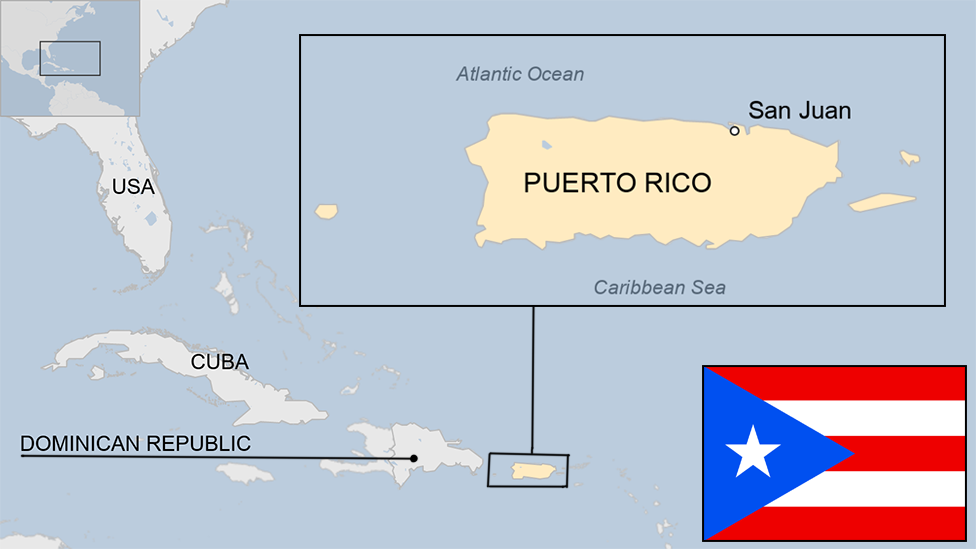Puerto Rico economy: Government defaults on bond payment
- Published
Why is Puerto Rico's economy struggling?
Puerto Rico has confirmed that it failed to make a debt payment at the weekend, in the latest sign of the economic crisis in the US territory.
The government said it did not have the funds available to pay more than $50m (£32m) due on bonds.
The ratings agency Moody's said it viewed the development as a default.
Puerto Rico's governor said in June that the island's debts of more than $70bn were unpayable and that its finances needed restructuring.
The US commonwealth paid only $628,000 of a $58m payment due on its Public Finance Corp (PFC) bonds, Government Development Bank President Melba Acosta Febo said in a statement on Monday.
She said the reason was because the legislature did not appropriate sufficient funds.
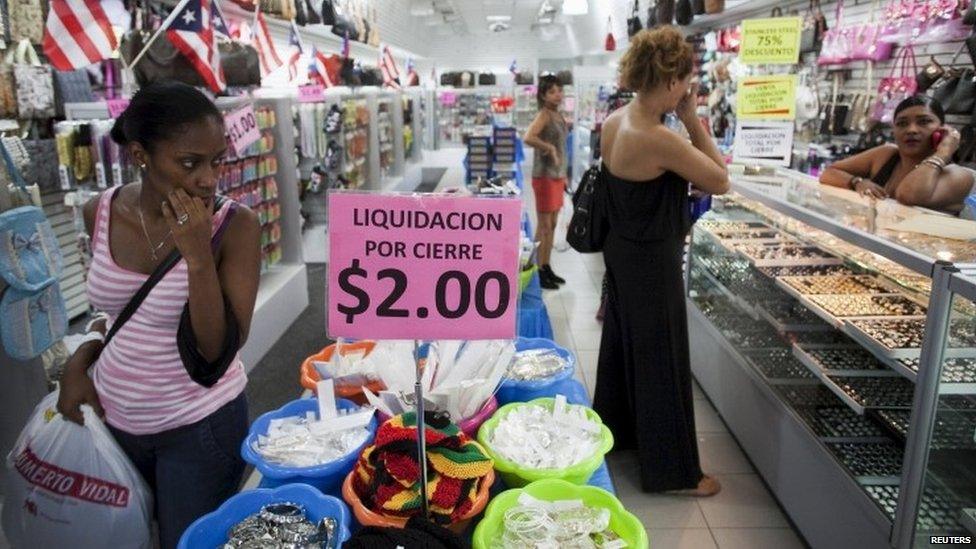
Economists say that Puerto Rico's financial woes run deep and will take years to sort out
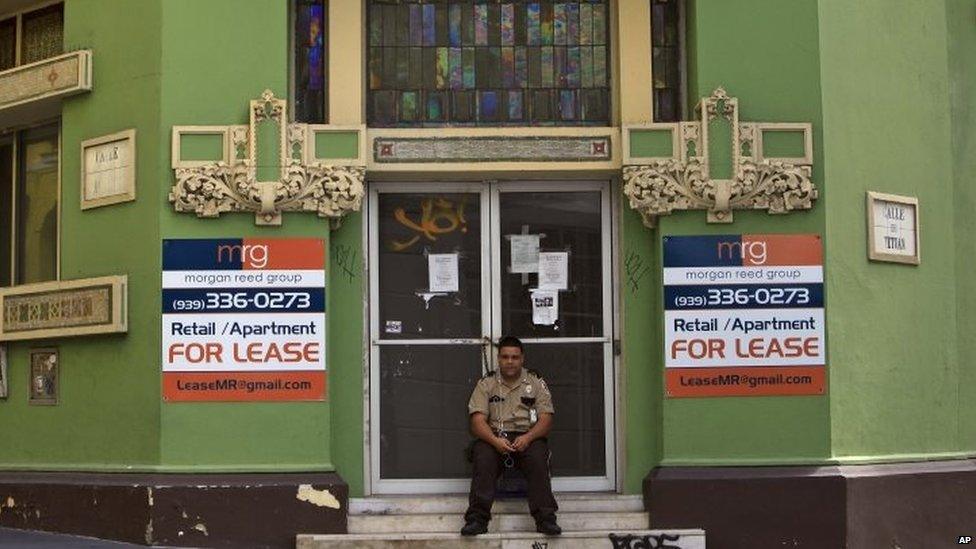
As businesses continue to close, Puerto Rico is by far the most indebted territory or state per capita in the United States
The government said on on Friday that although it would not complete the full payment, it should not be considered a default under a technical definition of the phrase. But that argument has been discounted by Moody's and other financial institutions.
Puerto Rico has $72bn (£46bn) of public debt. That makes it by far the most indebted territory or state per capita in the United States.
Unemployment is at almost 14% - more than double the national average - and over the last decade there has been little or no growth, resulting in the economy teetering on the brink of oblivion.
The island has been losing 1% (around 30,000 people) a year to Florida and other parts of the US. And it is mainly the economically active young who are leaving.
The government has rejected recommendations made by some economists from the International Monetary Fund (IMF) that employers should pay less than the federal minimum wage of $7.25 per hour.
There is also resistance to cutting the bloated public sector, which accounts for almost 20% of the workforce.
- Published3 August 2015
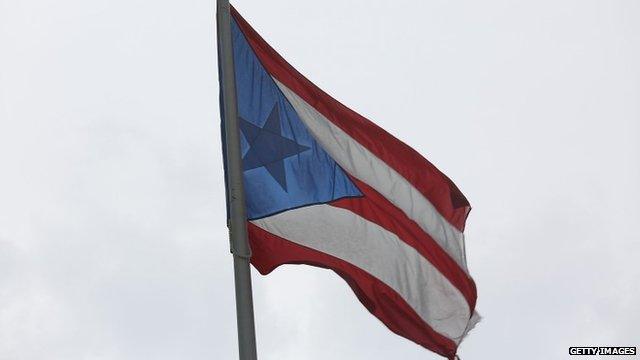
- Published30 June 2015
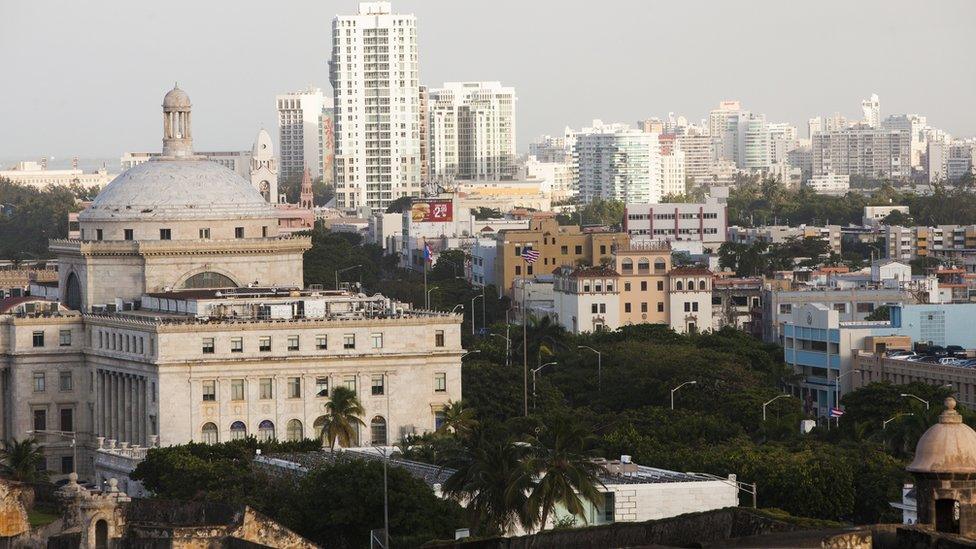
- Published5 May 2015
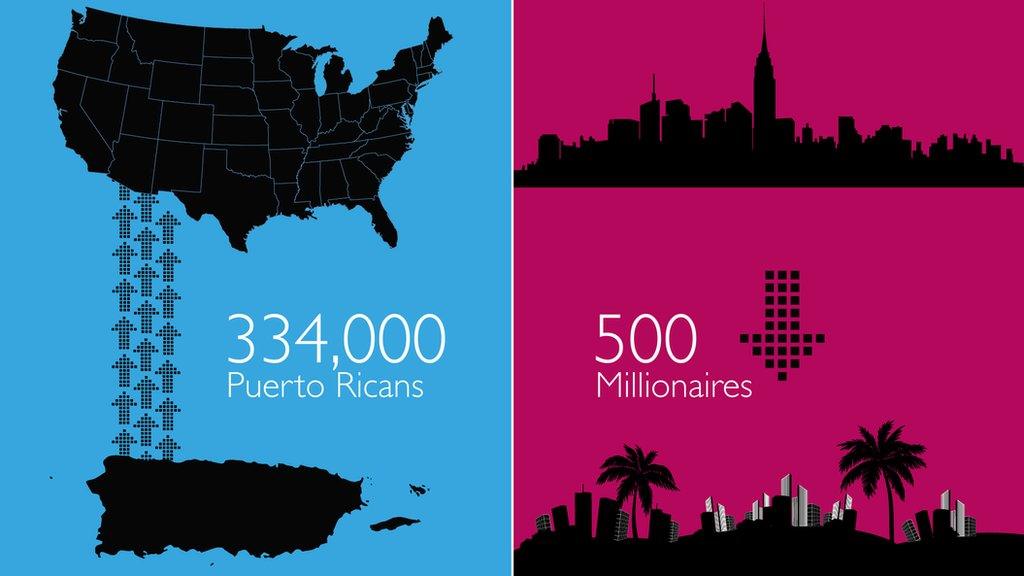
- Published11 September 2023
